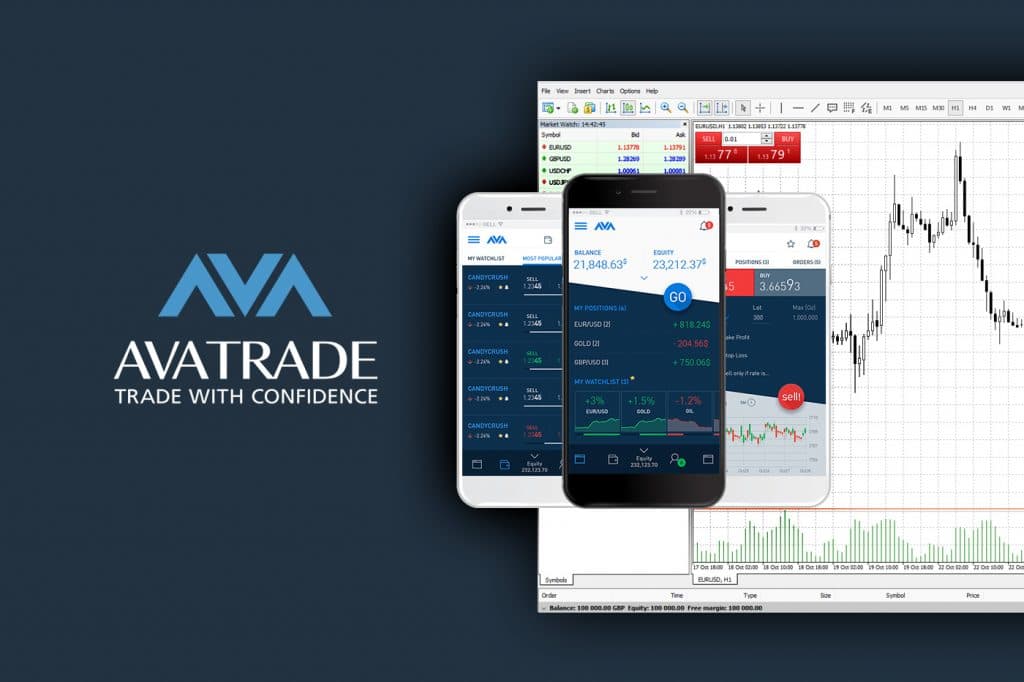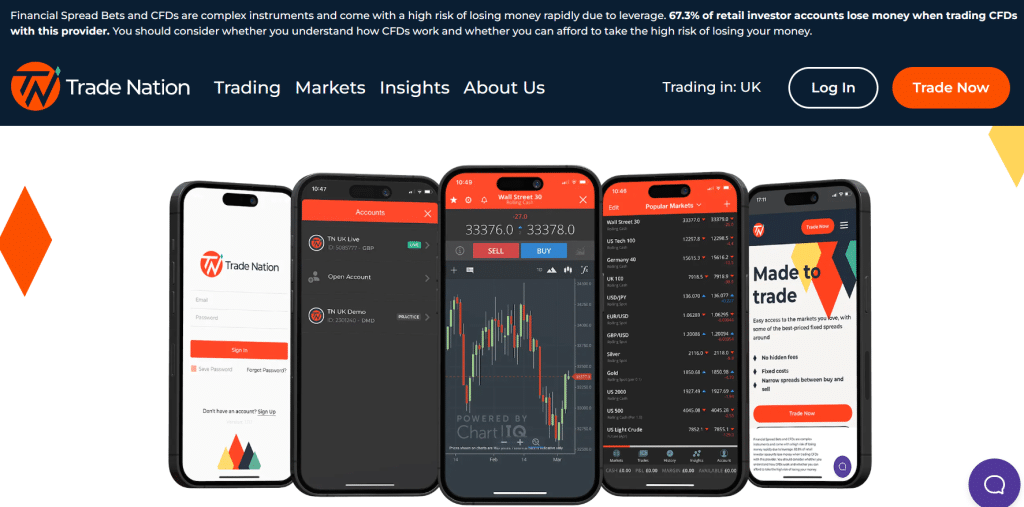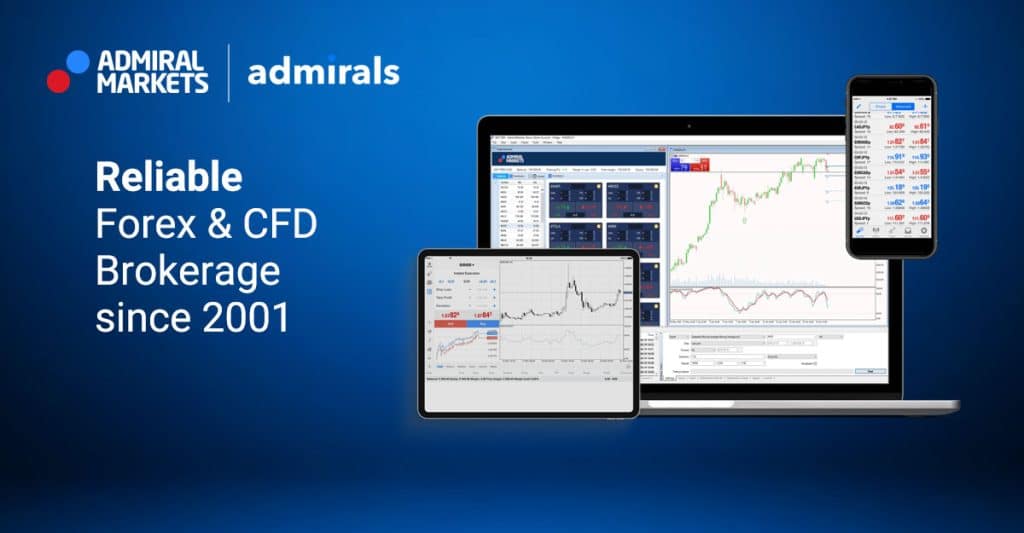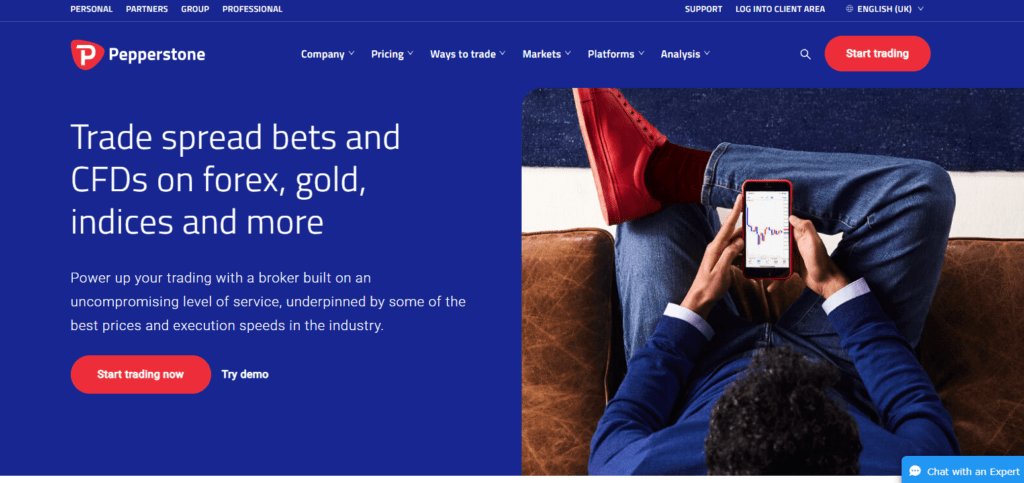Spread Betting vs CFD Trading – Differences and Platform Reviews
Spread betting and CFD trading are two forms of trading shares, forex, commodities, bonds and a variety of other financial instrument baskets. While these two types of trading have a lot in common, there are also some important differences to consider.
In this guide, we’ll compare spread betting vs CFD trading to help users to better understand the differences between the two types of trading. Our guide will cover what each type of trading is, how it works and the main differences.
Spread Betting vs CFDs: Key Differences
Let’s take a look at some of the key differences between spread betting vs CFD trading:
- Spread betting is tax-free; profits from CFD trading are taxed at the capital gains rate.
- Spread betting is commission-free; CFD trading may incur commissions and fees.
- Spread bets have fixed expiration dates; CFD contracts can be held indefinitely.
- Spread bets are placed over the counter; CFDs are traded within the market.
- Spread bets can be placed in any currency; CFD trades must be placed in the currency of the underlying asset.
CFD vs Spread Betting Comparison
Spread betting and CFD (contract for difference) trading have a lot of similarities in addition to their differences. Here’s how CFDs vs. spread betting stack up:
| Spread Betting | CFD Trading | |
| Tax Implications | Pay no capital gains tax or stamp duty. Losses cannot be used to offset capital gains from other financial instruments. | Pay capital gains tax on profit. Losses can offset gains from CFD trading profits. Not subject to stamp duty. |
| Commissions & Fees | None. | May charge commissions or holding fees. Many CFD brokers offer commission-free trading. |
| Spreads | Must pay a spread when trading. | Must pay a spread when trading. |
| Rising or Falling Markets | Can go long or short to profit in either market direction. | Can go long or short to profit in either market direction. |
| Leverage | Leveraged products; margin varies by asset. | Leveraged products; margin varies by asset. |
| Expiration Date | Contract has an expiration date and can be closed anytime before then. | No expiration date. Long and short positions can be closed at any time. |
| Direct Market Access | Traded over the counter with a broker. Spread bets are not transferable. | Direct market access. CFDs are transferable between CFD traders. |
| Profit Calculation | Profit or loss is equal to the difference between opening and closing price, multiplied by your investment amount. | Profit or loss is equal to the difference between opening and closing price, multiplied by your investment amount. |
How Do CFD Trading and Spread Betting Work?
CFD Trading and spread betting are two types of derivative products that allow traders to speculate on the price movement of an underlying asset. The underlying asset can be shares, ETFs, forex, commodities, indices, and other financial market instruments. With both types of derivatives, traders never own the underlying asset. Trades are based on the price action, with custody of the underlying asset being held on each independent trading platform.
When trading CFDs or spread betting, traders can take a long position or a short position. This enables traders to speculate on the price of an asset and if it will rise (long position) or if it will fall (short position), trading both directional outcomes of the market. The profit or loss is simply calculated as the difference between the asset’s price when traders close the trade minus the price when it was opened, multiplied by the amount of money invested.
In addition, it is possible to use leverage on trades when investing in CFDs or spread betting. Each asset class will have a different maximum leverage that is set by the broker based on its financial risk and jurisdictional regulations, which vary across countries. Trading platforms have differing margin requirements, depending on the broker, you may or may not be able to customise the amount of margin you use when trading CFDs or spread betting.
Within those broad strokes, there are some nuanced differences between spread betting and CFD trading.
How Does CFD Trading Work?
CFD trading involves opening a contract with a broker or CFD trading platform. You may need to pay a commission to open or close the contract, and there may be holding fees such as overnight or swap fees that add to the cost of your position.
Importantly, CFD contracts are transferable between CFD traders. That means they are traded on the open market, and many brokers provide direct market access (DMA). This increases transparency in the CFD market and increases the value of fast trade execution speeds.
How Does Spread Betting Work?
Financial spread betting is similar to CFD trading in that your position starts by opening a contract with your broker. However, there is never a commission to open a spread bet.
Spread bets are not transferable between traders, so they trade over the counter directly with your brokerage. In addition, spread bets have expiration dates. The bet can be closed at any time before the expiration date, but it will automatically be closed at that time if it has not already been closed.
Is Spread Betting Tax-Free?
One of the main differences between spread betting and CFD trading lies in how profits from these 2 derivatives are taxed.
Tax law in the UK and Ireland exempts both forms of trading from stamp duty since you never own the underlying asset. However, CFD trading is subject to capital gains tax (CGT), while spread betting is not.
That means that if you make a profit from CFD trading, you must pay capital gains tax on those profits. If you suffer a loss while trading CFDs, you can use that loss to offset profits from other CFD trades or from trades with other financial instruments. Profits from spread betting are not taxed, but you cannot use losses from spread betting to offset profits from CFD trading or other types of investments.
Fees
Another way CFDs vs spread betting are different is in the fees you pay to trade. You may pay a commission or transaction fee to open a CFD trade, while spread bets are not subject to commissions. The positive news is that many CFD providers now offer commission-free trading.
For either trading CFDs or spread betting, you will need to pay a spread. This is the difference between the bid and ask price of the underlying asset that you are trading around. Spreads can vary by asset and may fluctuate based on liquidity in the market.
Another thing to keep in mind is that when using CFDs to trade forex, you will need to purchase the CFD in the appropriate currency for the forex pair you want to speculate on. That means that if you are trading forex pairs in currencies other than GBP or USD, you may pay currency conversion fees to your broker.
Spread bets on forex pairs can be opened in any currency, so you do not have to worry about currency conversion fees.
Expiration Dates
CFDs vs spread bets also differ in whether you have to worry about contract expiration dates.
CFD contracts do not have expiration dates. Typically, contracts are set out for a period of one month at a time, but your broker will automatically roll your position over into a new contract before the old one expires. So, you can keep your position open for as long as you want (although there may be holding fees and increased margin requirements if your position is losing money).
Spread bets, on the other hand, do have expiration dates. Typically, there are 2 types of spread bets: those that expire at the end of the trading day, and those that expire on a quarterly basis. Depending on your broker, you may be allowed to roll over your spread bet into a new contract. If you do not roll over your contract, your bet will automatically be closed at expiration.
Regulation
Spread betting and CFD trading are both regulated in the UK by the Financial Conduct Authority (FCA). This is the UK’s primary financial watchdog, and it sets rules that govern how brokers can issue leveraged financial products for retail investor accounts.
An important thing to note is that spread betting is only allowed in the United Kingdom and Ireland. However, CFD trading is allowed around the world. So, all brokers that offer spread betting are regulated by the FCA. But some brokers that offer CFD trading in the UK may be regulated by foreign authorities, such as the Cyprus Securities and Exchange Commission (CySEC).
One thing that investors should note is that you cannot trade cryptocurrencies in the UK through CFDs or spread betting. The FCA has banned all cryptocurrency derivatives trading, which includes both CFDs and spread betting.
Is Spread Betting More Risky Than CFD Trading?
Both spread betting and trading CFDs come with substantial financial risk. However, spread betting is usually considered to be the more ‘risky’ strategy. This is largely due to the way profits are determined. In spread betting, profits are based on the accuracy of the trader’s prediction regarding the direction of price movement. The more accurate the prediction, the higher the profit potential. However, if the prediction is incorrect, losses can also be significant.
On the other hand, profits in CFD trading rely on correctly predicting the movement between the opening and closing prices of the contract. This means that traders can potentially profit from both rising and falling markets. While losses are also possible, they can be mitigated by implementing risk management strategies such as stop-loss orders.
Another factor that makes spread betting riskier is the use of leverage. In spread betting, traders can access higher leverage ratios compared to most CFD trading platforms. Although leverage can amplify potential gains, it also amplifies potential losses. Therefore, traders must exercise caution if they choose to trade with high leverage, as losses can quickly accumulate if the market changes direction.
Risk management strategies
Both spread betting and CFD trading involve speculating on price movement, which comes with inherent risk. Although it is not possible to completely eliminate risk, most traders employ risk management strategies to reduce their risk exposure.
- Setting stop-loss orders: A stop-loss is a price level at which a trade will automatically close. Traders often establish a pre-determined stop-loss level by conducting technical analysis and looking at historical data. Setting a stop-loss will protect you from losing everything if the market turns.
- Diversification: Diversification involves spreading your trades across a basket of different instruments rather than investing all of your capital into one asset. This reduces the impact of a single investment on your entire portfolio and reduces overall risk exposure.
- Risk management plan: Before you start spread betting or CFD trading, it is advised to develop a risk management plan. This involves understanding your risk appetite, the maximum risk per trade, the number of trades that you will place per day, and the frequency with which you will place trades. By establishing a plan, you can reduce the emotional element of trading.
UK Spread Betting Brokers
Want to start trading using spread betting? Let’s take a closer look at four spread betting platforms available in the UK today.
Our Ranking Criteria when Reviewing Trading Platforms:
- Trading Platform Interfaces: Trading platforms use different trading interfaces and users have different options to choose from. Ultimately, all offer varied user experience and user interfaces and choice of which platform to use depends on individual trader preferences. MetaTrader is a renowned trading platform among investors worldwide, however, it can be quite technical to navigate and more suited to advanced users. Some platforms have proprietary trading platforms which are more simplistic and easy to use for novice traders.
- Range of Instruments: All brokers offer different types of assets, while most typically will offer common asset types such as shares, forex and commodities. Some trading platforms offer not so conventional financial instruments such as top 100 company asset baskets, global index funds, differentials, and bonds. We look for brokers that offer a diverse range of asset classes.
- Fees, Spreads and Minimums: Naturally the most cost-efficient brokers will stand out as preferred trading platforms. We look for platforms that offer low fees and competitive spreads. We cover platforms that have either no minimum, or either reasonable minimum deposit requirements.
- Mobile Trading / Ease of Access: Our experts look at whether each trading platform offers a mobile application for trading on the go. When trading in the financial markets, users will want to be able to access their portfolio without device limitations. Having a mobile application for traders provides ease of access wherever and whenever.
- Regulated Brokers: Ensuring that traders can invest in a secure, safe, and transparent environment is essential. Many unregulated trading platforms have been the result of traders loosing large sums on money. In the UK trading platforms must be regulated and authorised by the UK’s Financial Conduct Authority in order to be able to provide investment services.
- AvaTrade: AvaTrade allows users to spread bet on over 1000 financial instruments from currency pairs, indices, equities and bonds. Traders can conduct spread betting via the MetaTrader 4 trading interface or use the AvaTradeGo mobile application. Users have the option of trading with leverage of up to 1:400 (only for forex pairs) when trading on margin.
- Trade Nation: Trade Nation offers an intuitive proprietary trading app, TN Trader, while also being connective to MetaTrader 4. Trade Nation offers some of the narrowest fixed spreads, that stay constant regardless of market conditions. Trade NAtion does not charge any account fees, free deposits & withdrawals, and no inactivity fees.
- Admiral Markets: Admiral Markets offer spread betting through MetaTrader 5 trading interface. There are no minumum deposits, although, users will need to deposit enough capital to cover the margin on assets chosen. Users are able to trial services on a demo account. Registered users have access to premium analytics with the Technical Insights Lookup feature asssiting users in finding actionable trade set-ups.
- Pepperstone: Pepperstone offers spread betting on MetaTrader platforms and its propiertary cTrader. It offers competitive spreads with low latency and fast execution. Pepperstone has over 1200 CFDs and spread bets available to trade, covering forex, commodities, shares, ETFs and currency indices.
1. AvaTrade – Trade With Spreads from 0.1
AvaTrade is an established UK broker that supports spread betting as well as other types of trading. With this broker, spreads start at just 0.1 and traders can access a range of advanced trading tools for free.
AvaTrade is compatible with third party charting tools including MT4, MT5 and also provides users with a mobile app, AvaGo, for trading on the go. The MT4/5 platforms are known for offering market-leading tools that can be very useful for spread betting.
The minimum deposit for AvaTrade is $100. However, users that deposit $1000+ will receive a dedicated account manager. The account fee is $100 per year and an inactivity fee of $50 per month is charged after 3 months of no activity.
As well as spread betting, AvaTrade supports cfd trading, forex trading and commodities trading. Altogether, there are over 1250 instruments available to trade on the platform.
There is no guarantee that you will make any profits with this provider. Your money is at risk.
2. Trade Nation – Tax-free spread betting platform
Trade Nation is a UK trading platform that offers tax-free spread betting services. The platform also supports CFD trading in stocks, forex, commodities and indices.
Trade Nation places a strong focus on security. The platform is regulated by the Financial Conduct Authority in the UK and has been regulated by them ever since 2014. What’s more, customer money is kept in segregated accounts that are managed by Barclays Bank.
Users can access MT4 or the native TNTrader platform to analyze the market and place trades. The platform also offers a range of educational resources that can be used to guide trading decisions.
Trade Nation offers low-cost fixed spreads and is free to sign up to. Professional trading accounts are available to qualifying UK traders.
77% of retail investor accounts lose money when trading CFDs
with this provider.
3. Admiral Markets – Low-cost spread betting platform
Admiral Markets is a spread betting platform that offers low spreads, up to 0.05. More notably, the platform provides an extensive range of educational courses including a Zero-to-Hero course which can be used by traders to improve their skills.
The platform is compatible with MT4, MT4, WebTrader and StereoTrader. This is one of the most extensive ranges of charting tools, making it an appealing option for traders who wat to experiment with different tools and features.
As well as spread betting, Admiral Markets offers commission-free CFD trading for stocks, forex, commodities, indices and ETFs. This means that traders can diversify their investments.
Upon signing up, it is possible to use a demo account to practice spread betting on Admiral Markets without putting any real money at risk. The demo account feature can be used at any point during a user’s trading journey and is useful when it comes to testing new strategies.
74% of retail investor accounts lose money when trading CFDs with this provider. You should consider whether you can afford to take the high risk of losing your money.
4. Pepperstone – Spread Bet with MT4, MT5, and cTrader
Pepperstone is a comprehensive spread betting broker that’s suitable for UK traders. The broker stands out for offering a wide range of trading platforms, including the popular MetaTrader 4, MetaTrader 5, and cTrader platforms.
All three platforms allow you to build your own custom technical indicators and backtest strategies for in-depth analysis. On top of that, the MetaTrader and cTrader platforms put an emphasis on risk management and give you access to advanced order types to help you manage trades.
In addition, Pepperstone offers social trading through MetaTrader 4 and Myfxbook. If you’re interested in trading forex, these social trading platforms can be helpful for connecting with other spread bettors and learning new trading strategies.
Pepperstone’s range of markets is somewhat limited. The broker offers around 180 financial instruments, including more than 60 forex pairs and 60 popular stocks from the US. The company offers low spreads with leverage up to 30:1 on major forex pairs.
Pepperstone is regulated by the FCA and all UK accounts come with negative balance protection. The broker offers 24/5 support by phone, email, and live chat.
Spread bets and CFDs are complex instruments and come with a high risk of losing money rapidly due to leverage. 75.3% of retail investor accounts lose money when trading spread bets and CFDs with this provider. You should consider whether you understand how spread bets and CFDs work, and whether you can afford to take the high risk of losing your money.
Conclusion
Spread betting and CFD trading are financial derivatives that allow traders to speculate on the future price of an asset without actually owning it.
Before you choose between spread betting vs CFD trading, it’s important to understand the differences between them. A big advantage of spread betting is that it is free from the capital gains tax, while CFD trading is not. On the other hand, CFD trading is available outside the UK and Ireland and CFD contracts do not expire.
References:
- https://www.finder.com/uk/investment-statistics
- https://www.fca.org.uk/news/press-releases/fca-bans-sale-crypto-derivatives-retail-consumers











